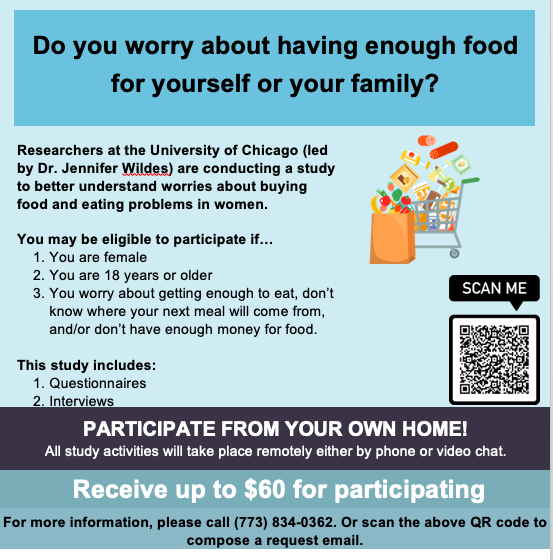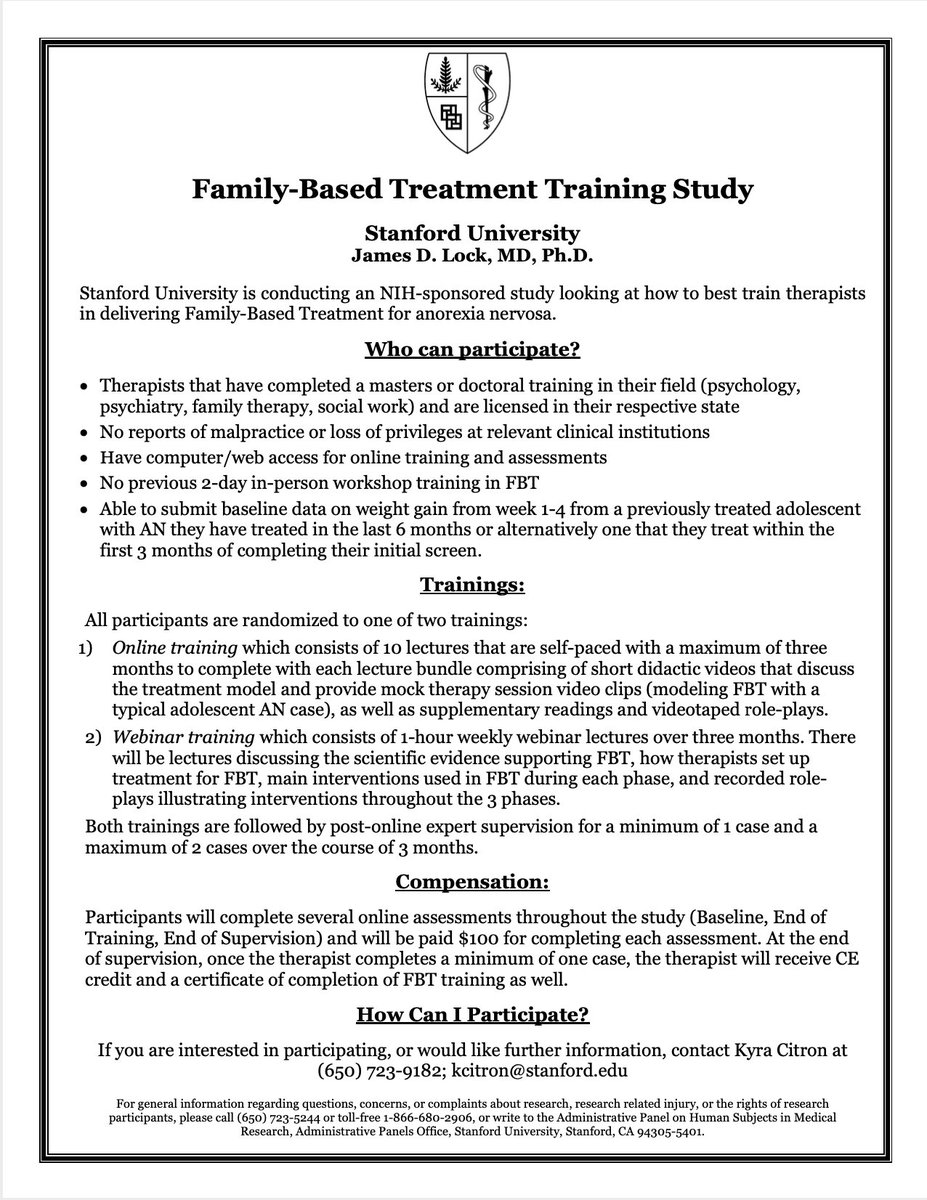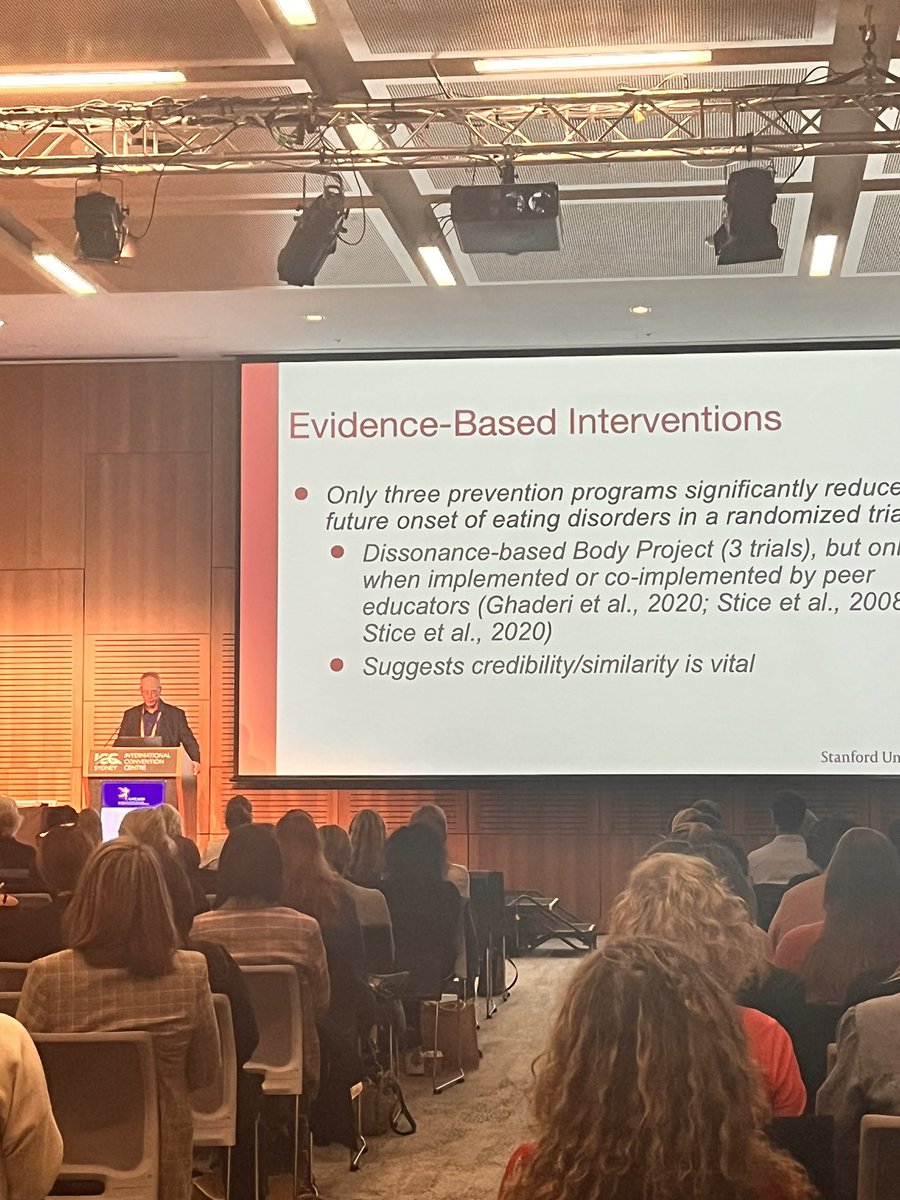
Stanford Eating Disorder Research
@edresearch
Hosted by Stanford University School of Medicine's Eating Disorder Research Program: A resource for eating disorder (ED)-related information
ID: 24959879
http://edresearch.stanford.edu 17-03-2009 21:34:45
667 Tweet
4,4K Followers
102 Following


We are hiring clinical faculty! Role includes teaching/supervision of pre-doc psych interns, psych postdocs, & child psychiatry fellows & providing clinical care for children, adolescents & young adults w/ eating disorders at inpatient & outpatient levels academicjobsonline.org/ajo/jobs/19148

Our team at University of Chicago is currently recruiting women for a study in food access and eating behaviors. Email [email protected] or scan the QR code if interested. Please RT and spread the word!


📢 Clinicians feel less confident evaluating males with #eatingdisorders and were less likely to evaluate HPG axis suppression in males, highlighting the need for more provider training. 📣 New study in @IntJEatDisord by Lance Nelson Stanford Pediatrics 🔗 bit.ly/3lsJJ7Q


🚨 #NewPublication alert The effect of mood on food versus non-food interference among females who are high and low on emotional eating pubmed.ncbi.nlm.nih.gov/34715937/ Journal of Eating Disorders @CaraBohon

Do you want to participate in a study about the brain and food? A Stanford University study is using fMRI to learn how brain function relates to eating and emotions. ALL women 18-25 are invited to participate and will earn $75 for taking part! Learn more redcap.stanford.edu/surveys/?s=CPF…





Stanford is conducting an NIH-sponsored study looking at how to best train private practice therapists in delivering Family-Based Treatment for Anorexia Nervosa. Email [email protected] or determine your eligibility here: redcap.link/b0ykko3q



Hard to read but worth the effort! Prof Eric Stice at #ANZAED2022 explaining the most effective prevention for EDs must include peers. Take note. Stanford Eating Disorder Research





